Xiaoqiang Xiao
Cross-lingual Knowledge Transfer and Iterative Pseudo-labeling for Low-Resource Speech Recognition with Transducers
May 23, 2023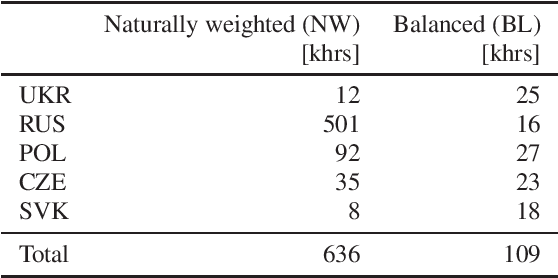

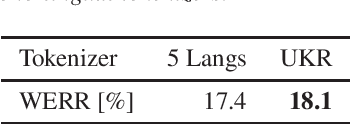
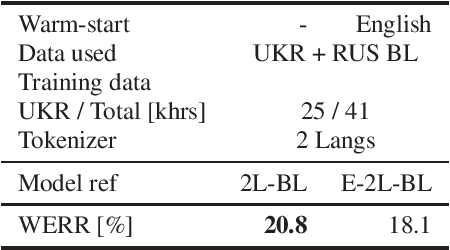
Abstract:Voice technology has become ubiquitous recently. However, the accuracy, and hence experience, in different languages varies significantly, which makes the technology not equally inclusive. The availability of data for different languages is one of the key factors affecting accuracy, especially in training of all-neural end-to-end automatic speech recognition systems. Cross-lingual knowledge transfer and iterative pseudo-labeling are two techniques that have been shown to be successful for improving the accuracy of ASR systems, in particular for low-resource languages, like Ukrainian. Our goal is to train an all-neural Transducer-based ASR system to replace a DNN-HMM hybrid system with no manually annotated training data. We show that the Transducer system trained using transcripts produced by the hybrid system achieves 18% reduction in terms of word error rate. However, using a combination of cross-lingual knowledge transfer from related languages and iterative pseudo-labeling, we are able to achieve 35% reduction of the error rate.
Exploring Retraining-Free Speech Recognition for Intra-sentential Code-Switching
Aug 27, 2021
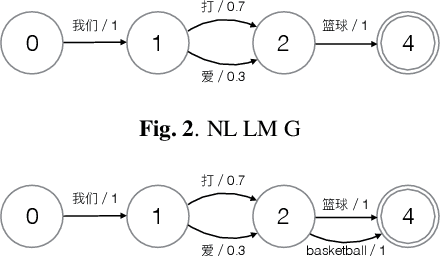
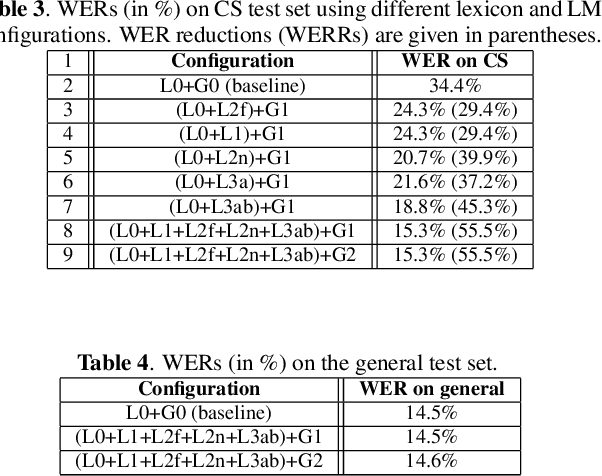
Abstract:In this paper, we present our initial efforts for building a code-switching (CS) speech recognition system leveraging existing acoustic models (AMs) and language models (LMs), i.e., no training required, and specifically targeting intra-sentential switching. To achieve such an ambitious goal, new mechanisms for foreign pronunciation generation and language model (LM) enrichment have been devised. Specifically, we have designed an automatic approach to obtain high quality pronunciation of foreign language (FL) words in the native language (NL) phoneme set using existing acoustic phone decoders and an LSTM-based grapheme-to-phoneme (G2P) model. Improved accented pronunciations have thus been obtained by learning foreign pronunciations directly from data. Furthermore, a code-switching LM was deployed by converting the original NL LM into a CS LM using translated word pairs and borrowing statistics for the NL LM. Experimental evidence clearly demonstrates that our approach better deals with accented foreign pronunciations than techniques based on human labeling. Moreover, our best system achieves a 55.5% relative word error rate reduction from 34.4%, obtained with a conventional monolingual ASR system, to 15.3% on an intra-sentential CS task without harming the monolingual recognition accuracy.
 Add to Chrome
Add to Chrome Add to Firefox
Add to Firefox Add to Edge
Add to Edge